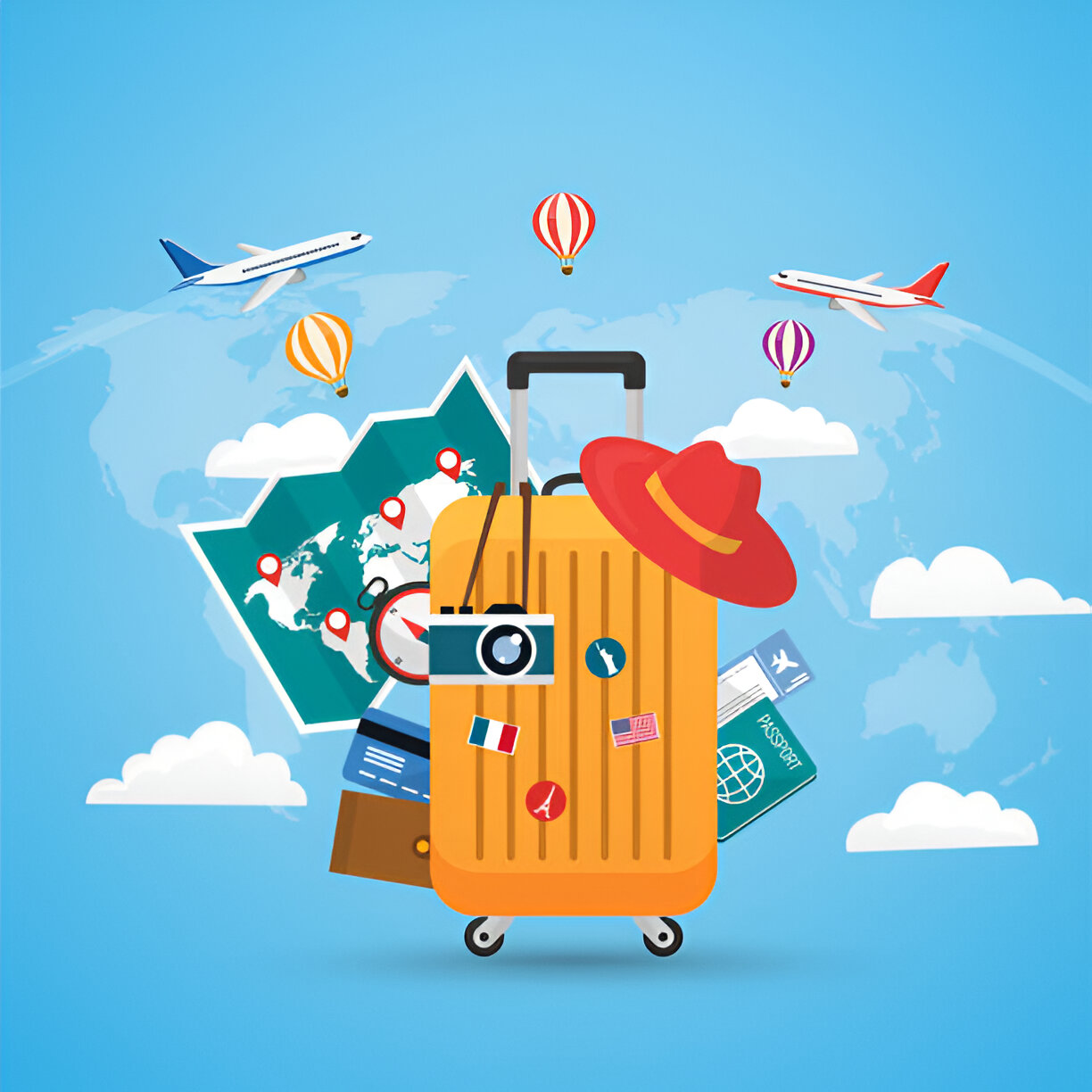“Revolutionizing Travel: AI Transforms Outbound Tourism with Personalized Experiences and Seamless Journeys.”
Introduction
Artificial Intelligence (AI) is revolutionizing the outbound tourism sector by enhancing customer experiences, optimizing operations, and personalizing travel services. From intelligent chatbots providing instant customer support to advanced data analytics predicting travel trends, AI is streamlining the planning and booking processes. Additionally, AI-driven platforms are enabling travel companies to offer tailored recommendations based on individual preferences, improving engagement and satisfaction. As the industry continues to embrace these technologies, AI is not only transforming how travelers explore the world but also reshaping the competitive landscape of tourism providers.
Personalized Travel Recommendations Through AI
The advent of artificial intelligence (AI) has significantly transformed various sectors, and the outbound tourism industry is no exception. One of the most notable changes brought about by AI is the enhancement of personalized travel recommendations. As travelers increasingly seek unique and tailored experiences, AI technologies have emerged as powerful tools that can analyze vast amounts of data to provide customized suggestions that align with individual preferences and interests.
To begin with, the integration of AI in the travel planning process allows for a more nuanced understanding of consumer behavior. By leveraging machine learning algorithms, travel platforms can analyze user data, including past travel history, search patterns, and even social media interactions. This data-driven approach enables AI systems to identify trends and preferences that may not be immediately apparent. Consequently, travelers receive recommendations that are not only relevant but also resonate with their personal tastes, thereby enhancing their overall travel experience.
Moreover, AI-driven chatbots and virtual assistants have become increasingly prevalent in the tourism sector. These tools facilitate real-time interactions with travelers, providing instant responses to inquiries and offering personalized suggestions based on user input. For instance, a traveler looking for a beach destination may receive tailored recommendations that consider factors such as budget, preferred activities, and even dietary restrictions. This level of personalization not only streamlines the planning process but also empowers travelers to make informed decisions that align with their desires.
In addition to improving the planning phase, AI also plays a crucial role in enhancing the travel experience itself. Once travelers arrive at their destination, AI can continue to provide personalized recommendations through mobile applications. These applications can suggest nearby attractions, restaurants, and activities based on the traveler’s preferences and real-time data, such as weather conditions or local events. This dynamic approach ensures that travelers can make the most of their time, discovering hidden gems that they might not have encountered otherwise.
Furthermore, the use of AI in personalized travel recommendations extends beyond individual preferences. It also takes into account broader trends and emerging destinations. By analyzing global travel patterns and consumer sentiment, AI can identify up-and-coming locations that may appeal to specific demographics. This capability not only benefits travelers seeking new experiences but also supports tourism boards and businesses in promoting lesser-known destinations, thereby contributing to a more sustainable tourism model.
As the technology continues to evolve, the potential for AI in the outbound tourism sector is vast. Future advancements may include even more sophisticated algorithms that can predict traveler preferences with greater accuracy, as well as enhanced integration with other technologies, such as augmented reality. This could lead to immersive travel experiences where recommendations are not only personalized but also interactive, allowing travelers to visualize their options before making decisions.
In conclusion, the impact of AI on personalized travel recommendations is profound and multifaceted. By harnessing the power of data analysis and machine learning, the outbound tourism sector is able to offer travelers tailored experiences that cater to their unique preferences. As AI technology continues to advance, it is likely that the personalization of travel will become even more refined, ultimately leading to a more enriching and satisfying travel experience for individuals around the globe.
AI-Powered Customer Service in Travel Agencies
The integration of artificial intelligence (AI) into the outbound tourism sector has revolutionized various aspects of travel planning and customer service, particularly within travel agencies. As travelers increasingly seek personalized experiences and immediate assistance, AI-powered customer service solutions have emerged as a vital tool for agencies striving to meet these demands. By leveraging advanced algorithms and machine learning capabilities, travel agencies can enhance their customer interactions, streamline operations, and ultimately improve the overall travel experience.
One of the most significant advantages of AI in customer service is its ability to provide instant responses to inquiries. Traditional customer service models often involve long wait times and limited availability, which can frustrate travelers eager to finalize their plans. In contrast, AI chatbots and virtual assistants are available 24/7, offering immediate assistance and addressing common questions related to bookings, itineraries, and travel policies. This immediacy not only enhances customer satisfaction but also allows travel agents to focus on more complex inquiries that require human expertise.
Moreover, AI systems can analyze vast amounts of data to deliver personalized recommendations tailored to individual preferences. By examining past travel behavior, preferences, and even social media activity, AI can suggest destinations, accommodations, and activities that align with a traveler’s interests. This level of personalization fosters a deeper connection between the traveler and the agency, as clients feel understood and valued. Consequently, this can lead to increased loyalty and repeat business, as travelers are more likely to return to an agency that consistently meets their unique needs.
In addition to enhancing customer interactions, AI-powered customer service tools can significantly improve operational efficiency within travel agencies. For instance, AI can automate routine tasks such as booking confirmations, itinerary changes, and payment processing. By reducing the time spent on these administrative duties, travel agents can allocate more resources to strategic planning and customer engagement. Furthermore, AI can assist in managing customer feedback by analyzing sentiment from reviews and social media posts, enabling agencies to identify areas for improvement and adapt their services accordingly.
As the travel landscape continues to evolve, the importance of data-driven insights cannot be overstated. AI systems can aggregate and analyze data from various sources, providing travel agencies with valuable market trends and consumer behavior patterns. This information empowers agencies to make informed decisions regarding marketing strategies, pricing models, and service offerings. By staying ahead of industry trends, agencies can better position themselves in a competitive market, ensuring they remain relevant and appealing to potential travelers.
However, while the benefits of AI in customer service are substantial, it is essential to strike a balance between automation and the human touch. Travelers often appreciate the efficiency of AI but still value the empathy and understanding that only a human agent can provide. Therefore, successful travel agencies are those that integrate AI solutions while maintaining a strong human presence, ensuring that clients receive both prompt assistance and personalized care.
In conclusion, AI-powered customer service is transforming the outbound tourism sector by enhancing responsiveness, personalizing experiences, and improving operational efficiency. As travel agencies continue to embrace these technologies, they are better equipped to meet the evolving needs of travelers, ultimately leading to a more satisfying and seamless travel experience. As the industry progresses, the synergy between AI and human expertise will likely define the future of customer service in travel, creating a more dynamic and responsive environment for all stakeholders involved.
Predictive Analytics for Travel Trends and Demand
The advent of artificial intelligence (AI) has significantly transformed various sectors, and the outbound tourism industry is no exception. One of the most impactful applications of AI in this domain is predictive analytics, which leverages vast amounts of data to forecast travel trends and demand. By analyzing historical data, consumer behavior, and market dynamics, predictive analytics enables travel agencies, airlines, and hospitality providers to make informed decisions that enhance customer experiences and optimize operational efficiency.
To begin with, predictive analytics allows stakeholders in the tourism sector to identify emerging travel trends before they become mainstream. By utilizing machine learning algorithms, companies can sift through extensive datasets that include social media interactions, search engine queries, and booking patterns. This analysis not only reveals popular destinations but also highlights shifts in traveler preferences, such as an increasing interest in sustainable tourism or experiential travel. Consequently, businesses can tailor their offerings to meet these evolving demands, ensuring they remain competitive in a rapidly changing market.
Moreover, predictive analytics plays a crucial role in demand forecasting, which is essential for effective resource allocation. By accurately predicting peak travel seasons and potential fluctuations in demand, travel companies can optimize their inventory management. For instance, airlines can adjust flight schedules and capacity based on anticipated passenger numbers, while hotels can implement dynamic pricing strategies to maximize revenue during high-demand periods. This proactive approach not only enhances profitability but also improves customer satisfaction by ensuring availability and competitive pricing.
In addition to forecasting trends and demand, AI-driven predictive analytics can also enhance personalized marketing strategies. By analyzing individual traveler data, such as past bookings and preferences, companies can create targeted marketing campaigns that resonate with specific customer segments. For example, a travel agency might identify a group of travelers who frequently book adventure trips and subsequently tailor promotions that highlight new adventure packages. This level of personalization not only increases the likelihood of conversions but also fosters customer loyalty, as travelers feel understood and valued.
Furthermore, the integration of predictive analytics with other AI technologies, such as natural language processing and sentiment analysis, allows businesses to gain deeper insights into customer sentiments and preferences. By monitoring online reviews and social media conversations, companies can gauge public perception of their services and identify areas for improvement. This feedback loop enables businesses to adapt their offerings in real-time, ensuring they remain aligned with customer expectations and market trends.
As the outbound tourism sector continues to evolve, the importance of predictive analytics will only grow. The ability to anticipate changes in traveler behavior and preferences will be paramount for businesses seeking to thrive in a competitive landscape. By harnessing the power of AI, companies can not only enhance their operational efficiency but also create memorable experiences that resonate with travelers. In this context, the role of predictive analytics transcends mere data analysis; it becomes a strategic tool that empowers businesses to navigate the complexities of the tourism market with agility and foresight.
In conclusion, the integration of predictive analytics into the outbound tourism sector represents a significant advancement in how businesses understand and respond to market dynamics. By leveraging data-driven insights, companies can anticipate trends, optimize resources, and personalize marketing efforts, ultimately leading to improved customer satisfaction and increased profitability. As AI technology continues to evolve, its impact on the tourism industry will undoubtedly deepen, paving the way for a more responsive and customer-centric approach to travel.
Conclusion
AI is revolutionizing the outbound tourism sector by enhancing customer experiences, streamlining operations, and personalizing travel recommendations. Through data analysis and machine learning, AI enables travel companies to predict trends, optimize pricing, and improve customer service. Additionally, AI-driven chatbots and virtual assistants provide instant support, while personalized marketing strategies target potential travelers more effectively. Overall, AI is making outbound tourism more efficient, accessible, and tailored to individual preferences, ultimately transforming how travelers plan and experience their journeys.




